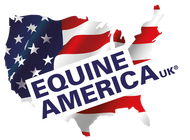Why do horses cough?

Coughing is the body’s way of removing mucus, dust and dirt from the airways. Normally, the horse’s own defences, such as the mucociliary escalator, remove the particles as they enter the upper airways, preventing the particles from reaching the sensitive lower airways. The mucociliary escalator is one of the first lines of defence in the upper airways, where particulate matter (e.g. dust) sticks to mucus, then the tiny hairs called cilia sweep this up through the respiratory tract into the mouth, where it is swallowed. Sometimes this defence system is overwhelmed, and a productive cough may develop to clear the mucus and debris from the airways.
Coughs can sometimes be caused by an infection including viruses (e.g. equine influenza or equine herpes virus) or bacterial infections (e.g. strangles), or even rarely parasites (lungworm), but the most common cause of a cough in the Winter is equine asthma. A key factor in the rise in winter coughs is the increased time spent in a stable, where despite our best efforts dust, mould and fungal spores, as well as ammonia can build up and lead to irritation of the airways. These allergens cause irritation and inflammation of the airways, leading to excess mucus production and bronchoconstriction (narrowing of the airways).
How can you reduce the risk of a cough in your horse:
1. Maintain excellent biosecurity and hygiene to reduce the risk of your horse picking up an infection. We have talked a lot about this in the past - to find out more about biosecurity click here!
2. Chose your bedding carefully – consider ‘dust free’ options if your horse is particularly susceptible to a cough, and don’t forget the other stables in the shared airspace as these will also have an impact.
3. Soak or steam hay to reduce the dust content. This year has been a difficult year for hay making with the unpredictable weather last summer, so be sure to check your hay carefully for mould and do not feed if it has spoilt. For more tips and advice on soaking hay, follow this link.
4.Feed hay or haylage from the floor, this helps your horse to clear any mucus or dust particles from the airways using gravity and the mucociliary escalator.
5. Ensure there is good ventilation through your stables.
6. Keep your stables clean and disinfect regularly to reduce bacterial, mould and dust build up. Build-up of urine in the bed will increase the ammonia levels in the sable. When mucking out and sweeping up, try to ensure your horse is not in the same airspace breathing in all the dust that is created.
7. Daily turnout is good for their lung health, as it allows the head to be down in a natural grazing position. Uneaten hay in the field and old bedding in field shelters should be cleared up to avoid mould and dust.
8. If your horse has a cough or you have any concerns about your horse, please contact your Veterinary Surgeon for advice.
Nutritional Support for a Horse with a Cough
With reduced access to fresh green material (grass) for many horses over Winter, it is important to ensure that the diet provides a good quality vitamin and mineral inclusion, either from fortified feed, or if the diet is fibre based, ensure a good quality broad spectrum vitamin and mineral suppelement (e.g. Everyday Vitamins and Minerals) or feed balancer is added. In addition targeted respiratory supplements can help to support the horse’s natural defences against respiratory challenges, utilising natural, plant-based ingredients and key antioxidant nutrients to support healthy respiratory and immune systems.
Our respiratory range of products have been scientifically formulated to provide targeted nutrition to support your horse’s respiratory health. Our technical team are available to answer any questions you may have about your horse!
 Skip to content
Skip to content

